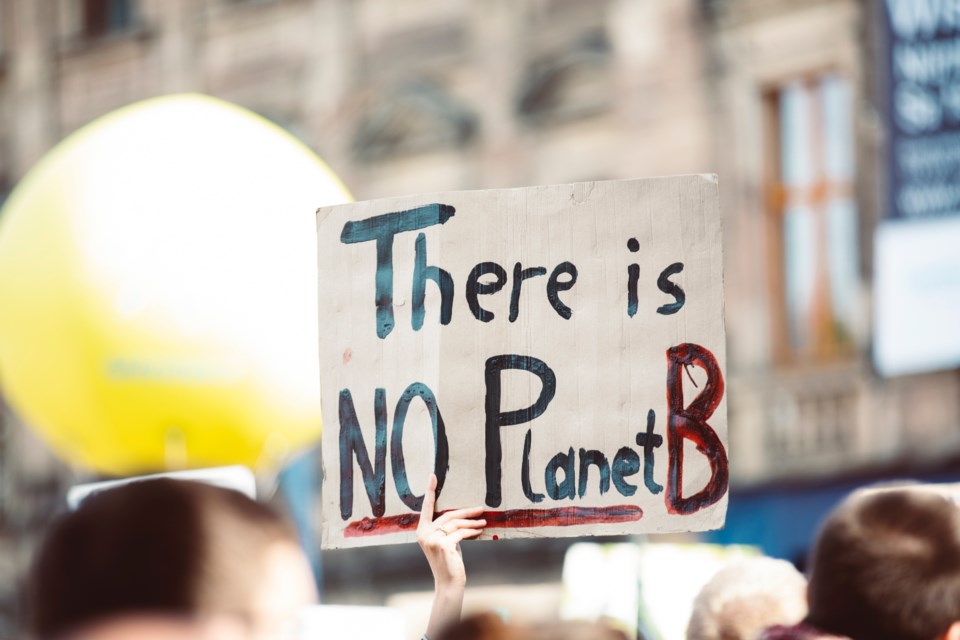As we approach the new year, coming out of the hottest year in the planet’s history, and with the next one expected to be even hotter, how should we be talking about climate change?
Throughout 2024, we saw harrowing scenes of loss and destruction broadcast to us in real time, and watched political tides change around the world. How can we stay hopeful and focused on what is within our power to change, while holding space for grief and uncertainty?
The holiday season for many is a time to gather with loved ones and to take strength from being in their company. Is it possible to talk about climate change over a holiday dinner or visiting with friends and family without being a downer? I think it is. And while I may not be an expert on diplomacy and artful conversation, these are some of the guiding principles to talking about climate change that have served me well, and I humbly offer them here:
Be encouraged by connecting with others who care
This year, the United Nations Development Programme and the University of Oxford released the results of the Peoples’ Climate Vote, a global survey answered by more than a million people across 50 countries. One heartening result? Eighty per cent of people worldwide want their country to do more to address climate change. (The Canadian result was lower, but still significant at 66 per cent).
If you’re looking to link up with others who care about the environment, know they are actually the majority, and you’re not alone in caring about the planet. If you’ve never talked about the climate with your family and friends before, odds are they share some of your concerns.
Listen to understand, not to argue
Tempting as it may be to refute every piece of misinformation that comes up in conversation, if you enter with a combative spirit, you may miss the real message of what is being said. Someone complaining about Canada’s carbon pricing (often mistakenly referred to as a “carbon tax”) probably doesn’t want to hear an immediate correction. It may be tempting to tell them that, actually, 80 per cent of households get more back than they spend on levied products and come out ahead — but there’s a chance you’ll be missing the meaning behind what they’re saying.
Many are feeling the crunch of inflation, finding it harder to stretch a dollar, and are looking for something to blame. You may be feeling that crunch, too. What would happen if you started from a place of empathy rather than trying to be right? This is not to say you can’t share the facts, but let them be well timed so they might be better received.
Be open to learning and admit when you are wrong
I like to think I am relatively well informed about environmental issues in general, but, of course, there are times when I get things wrong. I remember being adamant and vocal about avoiding products containing palm oil because of the associated deforestation and habitat loss for primates. After reading data scientist Hannah Ritchie’s Not the End of the World, I realized I had some backtracking to do; apparently, palm oil is an incredibly productive crop, with yields of 2.8 tonnes of oil per hectare as compared to its alternatives (.26 tonnes for coconuts, or .7 tonnes for sunflowers, for example), and switching to those alternatives could actually lead to increases in deforestation.
Not everything is black or white, and if we can bring humility and flexibility in our thinking to a conversation, those you’re talking to might bring that same willingness to reconsider their own thinking.
Find common ground and common language
No matter what, people’s ways of thinking about issues will differ. This is a good thing. But when talking about climate action, see where you can find those shared values with those who seem to be on the other side of the fence from you. A hot topic in my circles has been the proposed Highway 413. Those in favour of it are convinced of the gridlock relief the government has promised, and those against are concerned about the paving over of important farmland and wetlands, and increased carbon emissions.
In my experience, most people are not regularly thinking about the projected tonnes of CO2 emissions this highway would encourage, or those little endangered redside dace (as I am). However, they may share your preference for clean, breathable air, and dislike pollution. They may also share your interest in responsible spending of tax dollars and your concern for funding being redirected away from health care and toward a road models project will only save commuters an average of 60 seconds per trip.
You may have more in common with someone than you think, if you listen to their concerns and share yours in less polarizing terms.
Going into 2025 as people committed to climate action, our work is cut out for us. For myself, I hope to take advantage of the opportunity to reset and recharge over the holiday season, and to connect with, and learn from, the people I love. December is the darkest month, but we can fill it with light.
Inspired by the international organization Project Drawdown, Climate Action Newmarket-Aurora seeks to engage citizens, institutions, and policymakers in actionable and measurable solutions to stop catastrophic climate change as quickly, safely and equitably as possible. You can contact them at [email protected], and follow them on Facebook and Instagram.

.jpg;w=120;h=80;mode=crop)

